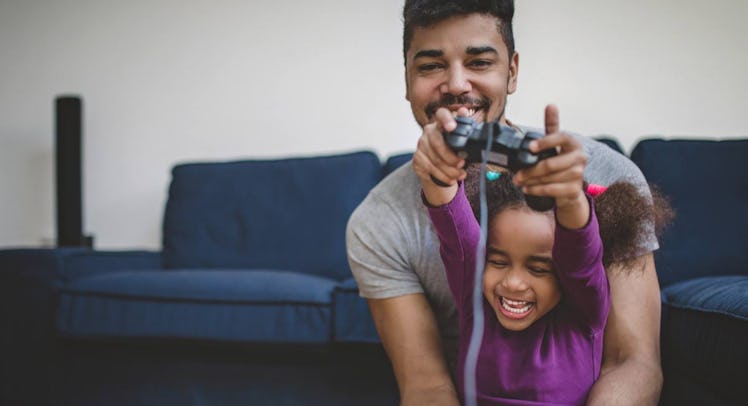Why All Parents Should Become Gamers
Entering that world with my kids helped me become a more effective parent.

“Our teenage son spends all his time gaming in the basement and it’s driving us crazy! Can you help him?” Is a request from stressed-out parents that I’m getting more often over the phone. I gently answer no but tell them that I am pretty confident they can. Once in my office, they go to great lengths explaining to me how exasperated they are with the power struggles that suck the energy out of their family life. And I listen attentively then smile while asking them if they are gamers. They look at me bewildered, incredulous as if they mistakenly walked into the wrong office.
I then proceed to explain to them that their son’s gaming world is important to him, possibly too important to him, but central none the less. That gaming is often a social event for boys with technology enabling online communication via headsets. I explain to them that he is challenging himself and others, and competing among his virtual peers to find his place in the pecking order of the gaming world’s hierarchy. And that he is experiencing the satisfaction of mastery and a sense of accomplishment that is meaningful to him. Not much different than what they did with the toys and environments available to them when they were growing up.
“But he is wasting his life away!” is the typical response and in their reply, I hear the fear of disempowered parents. So I explain to them that it is only by entering their son’s world that they can gently guide him out it. And by entering his world, it will become less scary to them. Furthermore and most importantly, by entering his world with an honest curiosity and desire to see what is good, and cool, and challenging, and meaningful to him, will he no longer see them as enemies.
To enter his gaming world means gaming. Yes, spending some of the precious free time they have gaming. When my two sons started gaming, I felt the same frustration and powerlessness, and I realized if you can’t beat them, join them. So I shopped around for a game that reflected my demographic and fell upon Max Payne 3. A film noir storyline about a middle-aged retired cop, jaded and disgruntled from having drunk his grief away after his wife and newborn child were murdered.
It took me a while to master the gaming controls, but with a bit of perseverance, I was able to walk through a game-play without getting killed. And then my brain started flooding me with the yummy feelings of mastery and accomplishment, and I got hooked. It was at that point that I entered my sons’ world. When a game-play was too difficult for me, I would ask for their help, and with pleasure and condescending looks, they outpaced their old man and showed off their mastery and skills that I honestly admired and needed. And I began to enjoy hanging out on the basement sofa watching them play.
Engaging discussions around the dinner table about the best ways to master parkour, to roll and shoot, and the absurdity of the storylines replaced the top-down arguments we used to have. These conversations would open the door for more meaningful exchanges about what they thought the impact of too much gaming, virtual violence, misogyny, racism and so forth had on them and their generation. I was no longer lecturing; we were dialoguing about these important issues in a meaningful way. And they were much more insightful than I initially thought.
So when the time came for me to shut down the game for homework, and they would shriek from the basement: “Not yet, I need to finish this level!”, I knew precisely what the intensity was about. And walk down to the basement to watch them struggle to gain mastery, and learn a few tricks from them. The five more minutes it took to finish the level became much more enjoyable than the interminable power struggles that previously defined our dance around gaming.
My sons don’t game that much anymore, maybe because when your parents do it, it’s not that cool anymore. But I think it’s because it ceased to be a flash point with their parents, and by meeting them in their world, we were able to gently guide them out of it.
Some parents don’t come back after that first session and I hope for their teenage sons’ sake, it’s because they are too busy gaming.
Jacques Legault is a clinical psychologist, supervisor, educator, consultant, writer, and public speaker with more than 25 years experience in the field. This article was syndicated from Medium.
This article was originally published on